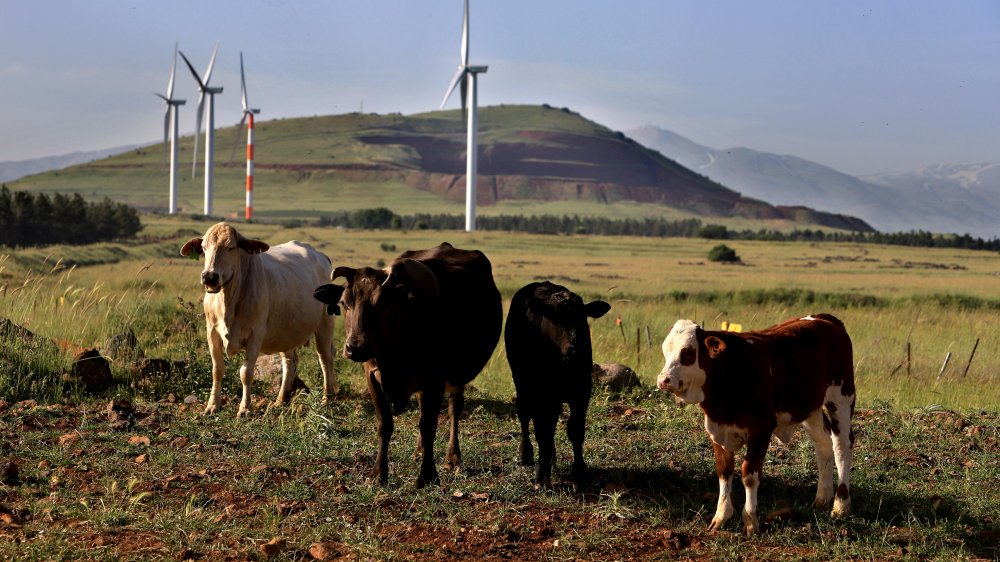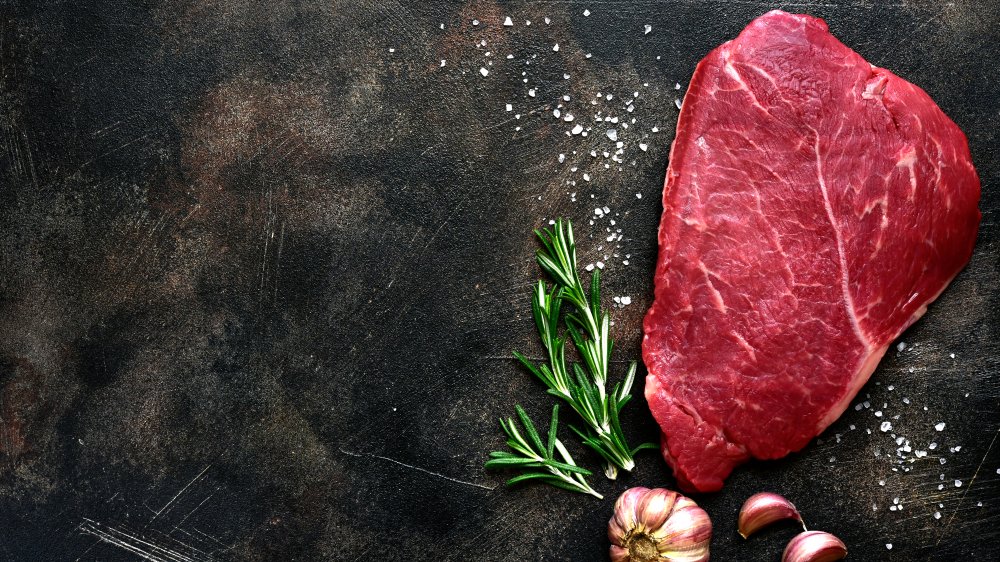The Real Reason Cow Meat Is Called Beef
Many meat products have a different name when they're on the shelves of a grocery store or a butcher than the name we use to refer to the animal itself. For example, we refer to the meat as pork and venison, rather than pig and deer. And of course, another such instance is the fact that we call cow meat "beef."
Some believe that this is a tactic to distance us mentally from the fact that we're eating an animal. However, chicken, lamb, and rabbit tend to be called the same thing whether they're in a petting zoo or on a grill, so it seems strange to apply this way of thinking to a handful of animals, and not others — especially the cute ones. So why do we refer to cow meat as beef?
The answer for this requires quite a deep dive into history, and as with many things in the culinary world, we owe the name to the French.
Beef comes from the French vocabulary
When the Normans took over Britain in 1066, they brought the French language with them, and French was brought into everyday life (via The Daily Meal).
The French conquerors were of a higher class than the Anglo-Saxons who lived in Britain at the time. The Anglo-Saxon folks were hunting, gathering, and farming these animals, whereas the French would sit at the dining table and enjoy them after the fact (via Alpine Butcher). As a result, the terms that the French used for these meats stuck when it comes to talking about them in the culinary sense, which meant that the English word "beef" cames from the French for cow — boeuf. The same can be said for the meat called "pork" — it comes from the French word, porc, which means pig.
Interestingly, chicken was initially part of this phenomenon as well. The French word for chicken, poulet, was turned into "pullet" — however, over the years, this evolved into a term used only for young hens, and not all chickens in general.
It's thought that the idea didn't quite take off with fish because the French poisson is a little too close for comfort to the English "poison."

